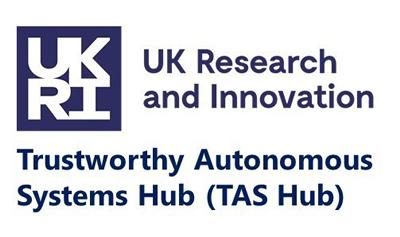Chair in Emerging Technologies, Susan Gourvenec, part of leadership team for multi-disciplinary UKRI Trustworthy Autonomous Systems Hub

A partnership led by the University of Southampton with King’s College London and the University of Nottingham was recently awarded the UKRI Trustworthy Autonomous Systems Hub (TAS Hub). The TAS Hub will be the focal point for the overarching Trustworthy Autonomous Systems (TAS) Programme, the UKRI’s flagship Artificial Intelligence/Autonomous Systems research programme.
The TAS Hub will lead programmes of research, advocacy & engagement, and skills training, and coordinate and work with the seven research nodes (to be awarded) each focussed on a particular theme: trust, responsibility, resilience, security, functionality, verifiability and governance & regulation.
The Hub is run by a consortium composed of over 30 academics and 60 partners.
The TAS Hub will be active across a range of disciplines and sectors, with many opportunities relevant to marine and maritime, including autonomous vehicles, IoT, defence & security, creative industries and industry X.0 - combining emerging, connected and smart technologies to digitally transform industry.
As the Future of the Sea Foresight review makes clear, autonomous systems and associated technologies are set to transform the UK and Global maritime economy, and while rapid advances have been made with regard to increased automation within the marine and maritime sectors, wide spread adoption of truly autonomous systems sits over the horizon. Although the dynamic and variable nature of the ocean make for a highly uncertain environment to work in, the impact this has on how much we trust our autonomous systems depends of the requirements of the missions we need them to perform.
The more complex missions become, the more sensitive they are to factors that are not controlled (environmental forces, other autonomous and non-autonomous agents, noise) and this demands an increasing level of supervision and human presence in the field to have oversight of and respond to events as they unfold. As the size of system and observational data outputs increases, they cannot be transmitted over the limited bandwidths available over the horizon, and so operations such as intervention, inspection mapping and co-ordinated multi vehicle operations require a large ratio of humans to autonomous systems in the field.
Recent advances in computational modelling and machine intelligence however, have the potential to model complex mission scenarios, making them more predictable and designing operations that are more robust to external influences. Similarly, machine intelligence has recently demonstrated the ability to improve the robustness of autonomous behaviour and self-diagnosis, and target aware data compression . The use of these technologies to improve the predictability of complex mission and achieve sufficient remote oversight to generalise the scalability of operations that is currently limited to only a small number of simple autonomous mission scenarios.
For maritime autonomous systems to be trustworthy, a fundamental question is, how can we increase the self-awareness and mission robustness of systems, and achieve the necessary oversight of their operation over the limited bandwidths available in the ocean?
The TAS Hub will provide researchers and partners a national and international network and opportunities to address these uncertainties and more, and to ensure autonomous systems of the future are trustworthy by design.
Researchers and partners will be able to engage with the TAS Hub through a programme of workshops (many of them online), project ideation activities, and joint research. The TAS Hub will also run calls for pump priming research funding, available to researchers within and beyond the Hub partners.
Stay informed about opportunities via our pre-launch website and following the TAS Hub on Twitter @tas_hub.
Professor Gopal Ramchurn, Director of the Centre for Machine Intelligence and Co-Director of the Centre for Maritime Futures, is Director of the new TAS Hub, and Professor Susan Gourvenec, RAEng Chair in Emerging Technologies in Intelligent & Resilient Ocean Engineering and Deputy Director of the Southampton Marine & Maritime Institute is the Southampton Lead on the Executive Board along with Dame Wendy Hall, Regius Professor of Computer Science, and an Executive Director of the Web Science Institute, as Skills Director.
The Hub was officially announced by UKRI on the 4th of June.
See the University of Southampton media release here.